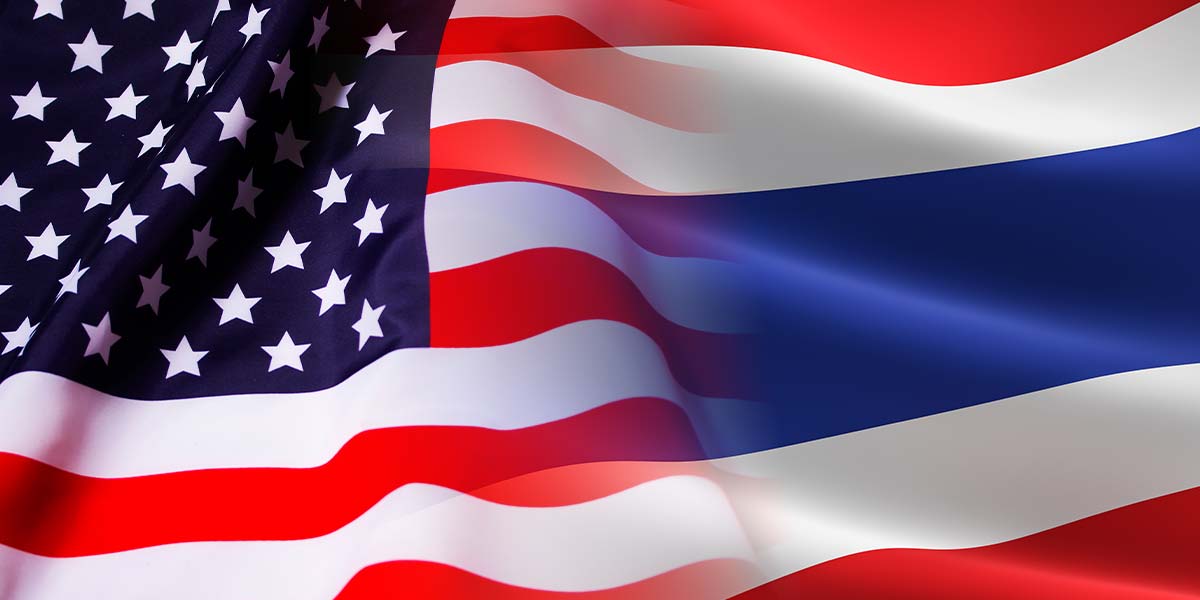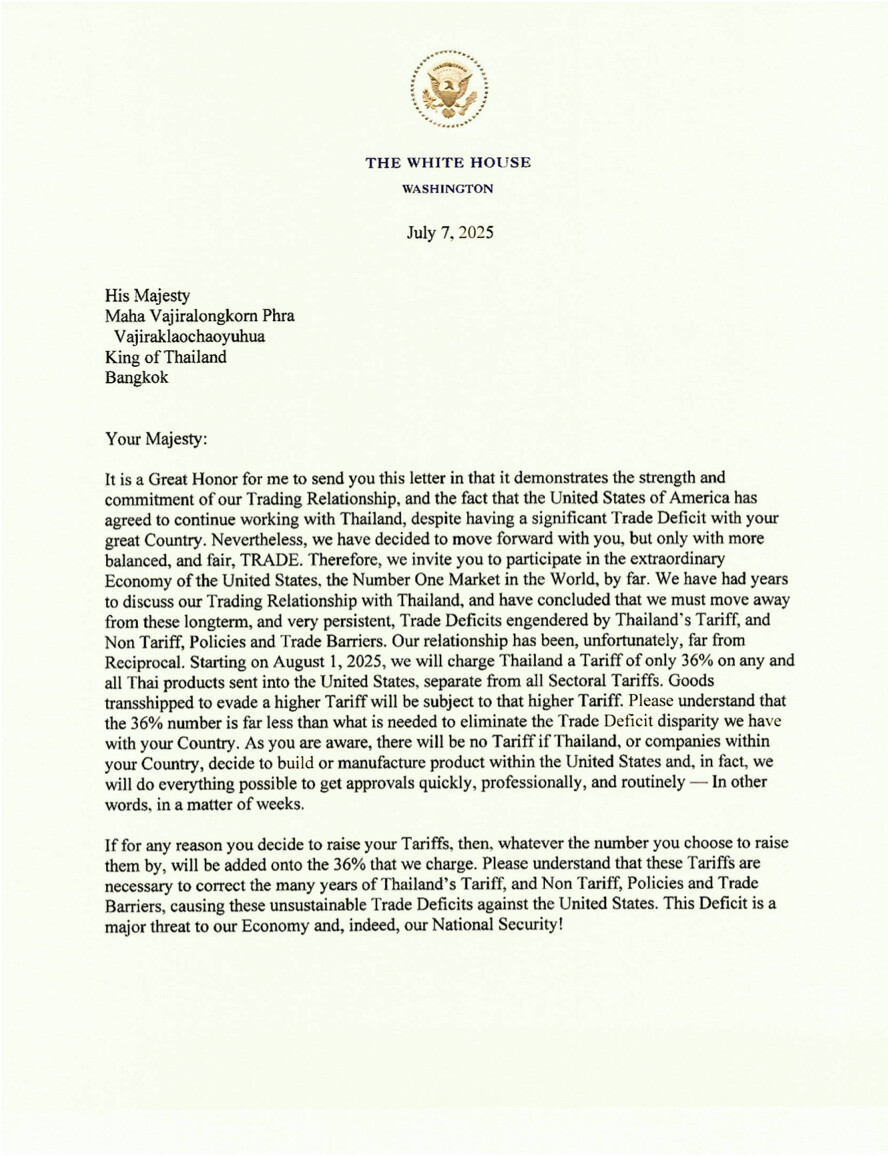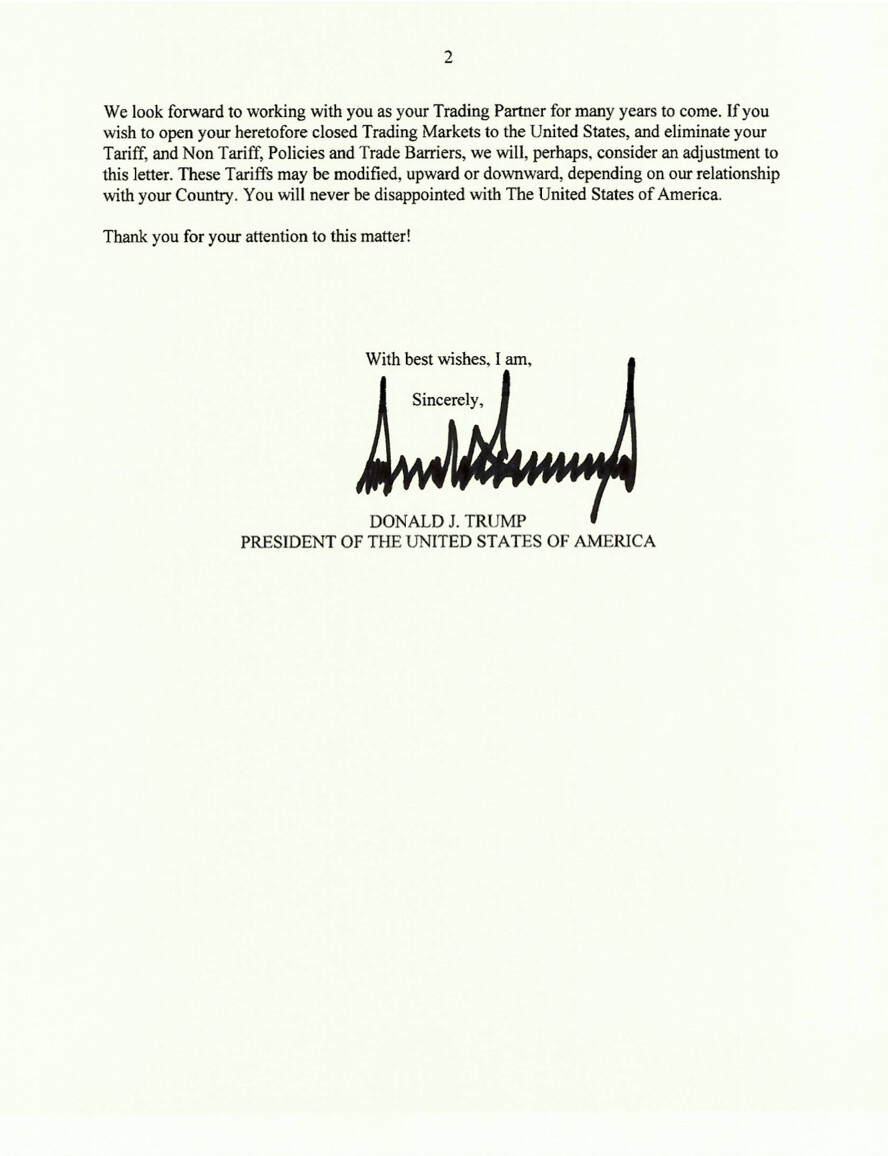The United States will introduce a sweeping 36% tariff on all Thai imports starting August 1, 2025, as President Donald Trump escalates efforts to address what he deems a persistent and unsustainable trade imbalance with Thailand.
The decision, outlined in a formal letter from the White House addressed to Thailand’s King Maha Vajiralongkorn and Suriya Jungrungreangkit, Acting Prime Minister of Thailand on July 7, underscores Washington’s commitment to recalibrating the trade relationship between the nations. President Trump emphasized the “great honor” of partnership but criticized longstanding Thai tariff and non-tariff barriers, calling the trade relationship “far from Reciprocal.”
“Starting August 1, 2025, we will charge Thailand a Tariff of only 36% on any and all Thai products sent into the United States, separate from all Sectoral Tariffs,” Trump wrote. He further warned that any goods found to be transshipped through third countries to avoid the tariff will be subject to higher penalties.
The letter makes clear that the 36% tariff is a response to what the Trump administration sees as trade barriers and market restrictions in Thailand that have contributed to a significant U.S. trade deficit. Trump hinted that the scale of the levy is “far less than what is needed” to fully eliminate this imbalance. Washington has also signaled that it remains open to readjusting the tariff level, depending on future developments in the bilateral relationship and market access for American companies.
The U.S. president offered Thai companies an alternative: avoid tariffs by relocating manufacturing to U.S. soil, promising expedited approvals for such investments. “We will do everything possible to get approvals quickly, professionally, and routinely—in other words, in a matter of weeks,” Trump assured.
Trump also issued a pointed warning: should Thailand respond by raising its tariffs on American goods, the U.S. will match such increases on top of the 36% baseline. This, he insisted, is necessary to correct longstanding deficits and reduce what Washington views as a threat to the U.S. economy and national security.
The letter leaves the door open for talks, indicating that Washington may review and alter these tariffs if Bangkok opens its markets and rolls back its trade restrictions. “We look forward to working with you as your Trading Partner for many years to come,” the president wrote, noting that the U.S. could consider “an adjustment to this letter” if Thailand makes reforms.
The move marks a significant escalation in the U.S. approach to Southeast Asian trade policy, signaling that further changes could be possible depending on responses from Thailand’s government. Industry observers and analysts will be closely watching for Bangkok’s next steps and the broader economic ripple effects.







